Realism all the way for me. I prefer the Deco look of Civ V by a mile. And I hate the map fog of VI. And slightly OT but can this realism be applied to the game as well?! I really dislike the addons for VI with vampires and the like and always have them switched off. The AI has enough trouble dealing with the 'basic' game never mind several addons which apparently cause more problems.
You are using an out of date browser. It may not display this or other websites correctly.
You should upgrade or use an alternative browser.
You should upgrade or use an alternative browser.
Poll: For Civ VII, which art direction style do you prefer?
- Thread starter queenpea
- Start date
- Status
- Not open for further replies.
- Joined
- Mar 5, 2017
- Messages
- 3,920
So what’s the problem? Those who like them can enable them and those who don’t can disable them.! I really dislike the addons for VI with vampires and the like and always have them switched off.
TreVor_ish
Prince
- Joined
- Sep 29, 2020
- Messages
- 536
People paid for content they don't like/don't want to have/don't want to use because it was attached to things they do want to have like new civs/leaders, and not necessarily like it. Or something along those lines I think.So what’s the problem? Those who like them can enable them and those who don’t can disable them.
- Joined
- Mar 5, 2017
- Messages
- 3,920
OK? So you bought DLC that had some stuff you like and some stuff you didn't like, and you can turn off the stuff you don't like. But because you are so upset about that, I shouldn't even have the option to play with it?People paid for content they don't like/don't want to have/don't want to use because it was attached to things they do want to have like new civs/leaders, and not necessarily like it. Or something along those lines I think.
TreVor_ish
Prince
- Joined
- Sep 29, 2020
- Messages
- 536
No, I agree with You on this one.OK? So you bought DLC that had some stuff you like and some stuff you didn't like, and you can turn off the stuff you don't like. But because you are so upset about that, I shouldn't even have the option to play with it?
I have no issue with modes I don't like. I just not play with them and it's fine. This is actually a very good way to make a game more diverse and to try new things. It does not force anyone to play in a certain way. It gives opportunity to try other things, brings variety, makes some games more crazy. Modes are not for balanced play. I wish however, they would be more modifiable.
- Joined
- Mar 5, 2017
- Messages
- 3,920
Agree. The modes in concept are fun ideas, but in execution were lackluster. Then again, everything in NFP was basically worse quality than before. Hopefully if these ideas return they will be more polished, balanced, and usable by the AI…No, I agree with You on this one.
I have no issue with modes I don't like. I just not play with them and it's fine. This is actually a very good way to make a game more diverse and to try new things. It does not force anyone to play in a certain way. It gives opportunity to try other things, brings variety, makes some games more crazy. Modes are not for balanced play. I wish however, they would be more modifiable.
KayAU
Emperor
- Joined
- Sep 1, 2014
- Messages
- 1,510
Okay, so this is off-topic, but when it comes to modes, while on one hand it is nice to customize the experience, the way it is implemented exacerbates some of the issues Civ 6 already has...especially the problem of having an overabundance of poorly interacting and unrefined systems. The modes are also very uneven in scope and suitability for being plugged in and out. Tech/civic Shuffle is a fairly inconspicuous feature which mildly mixes things up. Secret Societies is also pretty low key, basically adding a bonus tree and a couple of buildings. Then you have Heroes and Legends, which requires active management, throws any semblance of balance out the window, and leaves the AI with no idea how to play the game. Monopolies/Corporations and Barbarian Clans looks like core systems which should be tightly integrated, rather than slapped on top of everything. And as for Apocalypse and Zombie Defense, those are actually what I would normally consider game modes.
It seems to be all over the place.
It seems to be all over the place.
Hellenism Salesman
Emperor
But ones that are mostly random, often with little warning. I see what they were trying to do, but I feel like it’s better to have challenges be a result of a player’s mistakes (i.e. revolutions and wars).Well yes, that's why they are called disasters. A serious trouble to overcome.
zaloglu2211
Chieftain
Civ V was good for the art style. Next game should be like that, or even better because we're not in 2010
TempusFugit
Warlord
- Joined
- Feb 20, 2023
- Messages
- 136
I agree that the long term legacy of the series is important, but I hope your reply to him wasn't an argument for using stylized visuals over realistic. Because that would be a huge stretch.A lot of this is a fair opinion to hold (I disagree in general, but the whole point is that we're each to our own), but the interesting bit here is "who cares if a game ages well when the franchise pushes a new version every X years".
The thing is, Civilisation is slow on that score. And getting slower. This is good, because games development is getting more and more unsustainable (if keeping to a traditional dev cycle). Something needs to give. It's better if that give is "time" (that games need) rather than any other resource or resulting factor of quality or detail. There are FPS franchises that push out a release every year or two. Pokemon is infamous (if you follow that franchise) because it's common (but not "common") knowledge that the devs actually have to release a lot of games. This affects the quality of the main franchise titles, because they're not actually given the full X years between each main entry, because it's the one dev studio that also handles the spinoffs and offshoots.
So, slow is good (imo). But this doesn't answer the question. To be a bit cheesy, Civilisation answers its own question. Whether or not a game "ages well" is to "stand the test of time" (sorry). Civ does that. Even ignoring the tangent that is SMAC (not being a true mainline game, and tied up in IP hell), Civ IV, V and VI are all massively popular to this day (and I'm sure II and III still have their fans). Like, massively popular. IV perhaps less so, but it's definitely stood the test of time long enough to count. The fact that V and VI pull in the numbers they do with IV still being so referential is testimony to all three games standing the test of time.
And yet, Firaxis needs to stay in business (to keep making games we have a good chance of liking). If I had to choose between Call of Duty and Civilisation, it'd be Civ, right? It matters to me if Firaxis goes out of business, because I like Civ. That doesn't mean I like every version equally, or even at all, but I like Civ. Entries in this franchise have a better-than-average chance of turning out to be games I enjoy.
So I care if a game ages well, and I care about new and upcoming entries in the franchise. Both sides of the coin are important to me.
What causes games to age well isn't easy to predict when you are making them, and that is why I think that the best approach is to make games for the immediate years following the release, not for the ages. But there are of course some things that can be done that often are good for giving games a long life. One is good mod support. The civ series unfortunately hasn't prioritized this in the two last entries, so we can only hope that it is something they will return to at some point. But the other one is something the civ series have always been good at, and for each new entry increasingly so, and that is making games that are very replayable because they offer you a wealth of options and freedom in how to play them.
This alone isn't enough to give a game a long life, but when you combine that with generally good gameplay, a big fan community and a lack of major controversies you have a good recipe for success.
- Joined
- Mar 5, 2017
- Messages
- 3,920
The mod support for Civ 5 and Civ 6 was frankly excellent. I say that as a modder and a user of mods. Just because people don't make niche gigantic overhaul mods like 20+ years ago doesn't mean there's bad mod support.One is good mod support. The civ series unfortunately hasn't prioritized this in the two last entries, so we can only hope that it is something they will return to at some point.
I prefer stylised myself, but that argument was purely to do with the game lasting vs. being made redundant by a successor.I agree that the long term legacy of the series is important, but I hope your reply to him wasn't an argument for using stylized visuals over realistic. Because that would be a huge stretch.
Mod support I could talk about a lot but it's pretty off-topic. The one thing I will say that is support is relative, not only to other entries in the series, but to the wider industry. With that in mind, Civ is significantly moddable, even in V and VI. I'm happy to stick my nose into a new thread to take that further.
TempusFugit
Warlord
- Joined
- Feb 20, 2023
- Messages
- 136
It could very well be that my impression here is highly inaccurate, but both from observing the amount of mods available, and reading complaints from modders in the past, I have gotten the impression that Firaxis has done a lot less to make the two latest games "easy" to mod. Civ 5 specifically did receive a lot of complaints if I'm not mistaken, and the amount of mods made for that game was significantly less than for Civ 4 or Civ 3. For Civ 6 I have the impression that there is a little more mods, but not that it is easier to change more complicated things. I've also seen a modder complain than it was easier to mod for Civ 5 than 6, and that is why he or she went back to modding for 5 instead. I don't really know how accurate any of this is, I just know that there are far fewer mods, and much less mods that change game mechanics than before, even though the playerbase has increased a lot.The mod support for Civ 5 and Civ 6 was frankly excellent. I say that as a modder and a user of mods. Just because people don't make niche gigantic overhaul mods like 20+ years ago doesn't mean there's bad mod support.
Modding for Civ 3 and Civ 4 was of course very different things. In Civ 3 it was very easy to make a mod or scenario with the editor if you didn't want to add any new graphics, and even if you wanted to do that it was probably not very hard if you read up on what you wanted to do and found suitable artwork created by a fellow modder in the library. This set the bar very low for who could make mods, and therefore there was a huge number of mods and scenarios made by talented people for that game. While there were several things that was hardcoded in the game that you couldn't change with the editor, there was also a huge amount of things that you could change, like technologies, units, stats, governments and more. The Civ 3 editor was a continuation of the great game editors that game companies made in those days like in Heroes of Might and Magic 3 and Starcraft.
For Civ 4 it became a lot more complicated since there wasn't any editor available, or if there was an editor it didn't have many of the features that the one in Civ 3 had, so the bar for mod making was raised higher. But the developers had instead made the game very mod friendly for anyone skilled in Python, and anyone willing to learn it, and this opened up the possibility for much more advanced mod endeavors. So even though the bar was raised a lot higher for who could participate, the civ mod community had its greatest time in this period.
Obviously it is still possible to create highly advanced mods for Civ 5 and 6, like the Voc Populi and Anno Domini teams have shown, but it seems to me that it is harder than before. Of course a lot of this can also be attributed to the increased resolution and polygon counts used for artwork in Civ 5 and 6, but I don't buy that this is the only reason when there also seems to be fewer mods around that mostly change gameplay. I will take your disagreement into account however.
Last edited:
- Joined
- Mar 5, 2017
- Messages
- 3,920
With all due respect: you worded an uninformed opinion about the state of modding very definitively. Time and time again, the most vocal complaints I've read about "the state of Civ modding" come from people who don't know how to mod. I don't mean to attack you, but it's frustrating to read these opinions repeated as fact over and over.It could very well be that my impression here is highly inaccurate, but both from observing the amount of mods available, and reading complaints from modders in the past, I have gotten the impression that Firaxis has done a lot less to make the two latest games "easy" to mod.
I want it known to the developers that people who actually mod sincerely appreciate the overall flexibility of the modifier system, the general move away from hardcoding stuff (and therefore less of a reliance on unstable Lua), the addition of an asset editor to make 3D graphics, and also the ease of use of mods in multiplayer. The last point is extremely important to me. It's never been easier to set up modded games with your friends.
It's funny you mention the complaints of Civ 5 because most of the uninformed complaints about Civ 6 reference how much better Civ 5 modding was. I suspect no matter what that the same opinions will return with Civ 7, complaining about how much better Civ 6 modding was. Human nature, I guess.Civ 5 specifically did receive a lot of complaints if I'm not mistaken, and the amount of mods made for that game was significantly less than for Civ 4 or Civ 3. For Civ 6 I have the impression that there is a little more mods, but not that it is easier to change more complicated things. I've also seen a modder complain than it was easier to mod for Civ 5 than 6, and that is why he or she went back to modding for 5 instead. I don't really know how accurate any of this is, I just know that there are far fewer mods, and much less mods that change game mechanics than before, even though the playerbase has increased a lot.
Anyway, the number of mods available is not a good surrogate for moddability, and one anecdote of one unknown person saying "Civ 5 was easier to mod" is not a compelling statement either. What does that even mean, easier? Some things are easier in Civ 6, some things are different. By and large, I think it is actually much easier for a person to make a mod for Civ 6 because of the modifier system. Most stuff in Civ 5 is really hardcoded and requires Lua, which is not as easy to grasp or implement as simple database changes.
Many mods on the workshops are maps anyway. Civ 6's late worldbuilder release contributes to the difference. Even though I don't care to make maps, I know making custom maps is great fun for a lot of people, and I will readily concede the Civ 6 worldbuilder rollout as inferior to that of Civ 5. Took way too much time.
The days of simple editors are gone. Civ 3 is a much simpler game, and was cheaper and easier to make than Civ 5 or Civ 6. And graphics have improved and changed so much, as have standards: you can still make a mod that adds a "building" without any added model, but nowadays players are spoiled for choice by modders who take the time to actually include these things.Modding for Civ 3 and Civ 4 was of course very different things. In Civ 3 it was very easy to make a mod or scenario with the editor if you didn't want to add any new graphics, and even if you wanted to do that it was probably not very hard if you read up on what you wanted to do and found suitable artwork created by a fellow modder in the library. This set the bar very low for who could make mods, and therefore there was a huge number of mods and scenarios made by talented people for that game. While there were several things that was hardcoded in the game that you couldn't change with the editor, there was also a huge amount of things that you could change, like technologies, units, stats, governments and more. The Civ 3 editor was a continuation of the great game editors that game companies made in those days like in Heroes of Might and Magic 3 and Starcraft.
For Civ 4 it became a lot more complicated since there wasn't any editor available, or if there was an editor it didn't have many of the features that the one in Civ 3 had, so the bar for mod making was raised higher. But the developers had instead made the game very mod friendly for anyone skilled in Python, and anyone willing to learn it, and this opened up the possibility for much more advanced mod endeavors. So even though the bar was raised a lot higher for who could participate, the civ mod community had its greatest time in this period.
It's hardly a fault to Civ 6 that it's more advanced than Civ 3 and thus requires more input from both developers and modders.
"To me it seems harder than before" - Odd statement if you've never actually made a mod yourself. And it's not just increased "resolution" or polgyons - it's an increase in overall graphic presentation. In Civ 5 and earlier games, unique buildings didn't even show up on the map--they're just icons in your menu. In Civ 6, every building is actually represented, which again, raises the standards that mod users have.Obviously it is still possible to create highly advanced mods for Civ 5 and 6, like the Voc Populi and Anno Domini teams have shown, but it seems to me that it is harder than before. Of course a lot of this can also be attributed to the increased resolution and polygon counts used for artwork in Civ 5 and 6, but I don't but that this is the only reason when there also seems to be fewer mods around that mostly change gameplay. I will take your disagreement into account however.
---
Again, I don't blame you for having this opinion. It primarily arises from two things. First, it comes from Civ 5 players observing the "lack of a Vox Populi"/"lack of a Rhyse and Fall"/whatever for Civ 6. Second, it comes from a small handful of vocal Civ 6 modders who are upset they can't make their huge overhaul mods becuase the DLL hasn't been released. Other users see these complaints and it becomes a game of telephone that we all repeat. These are pretty narrow complaints that miss the forest for the trees.
TempusFugit
Warlord
- Joined
- Feb 20, 2023
- Messages
- 136
Well that is in many ways an outdated and 90's way of looking at things actually!Well if you look at civ 5 water, terrain textures, poligon numbers in units, smoke/shadow/volumetric effect
Everything is outdated today, but in time of release I also think it was good looking.
The technical quality of graphics was much more important before, and especially so in the 90's and the first part of the decade after it. But afterwards technical progression in graphic quality happened at a much slower rate. When there was a change in console generation you would see a small jump, but nothing like what happened before. And after Minecraft, the huge retro revival and the indie scene happened, people don't think of graphic styles as outdated in the same way they did before and there is now a big variety of graphical styles that all exists at the same time.
There are of course still people that will significantly have their enjoyment of a game impacted at how "dated" a graphic style is, but it is my impression, both for older and younger gamers, that a large amount of them likes playing games in a variety of graphical styles these days. This is partly because the budget of the company that develop a game is the most important factor for making it look technically impressive and current these days, so unless people only want to play games from big budget studios, they have to learn to appreciate other graphic styles.
What is far more important today are other aspects of the visuals, like art style, color use, the amount of stylization versus realism and the specific types of stylization used. Like this thread is a good example of! The amount of polygons or pixels that Firaxis will use in their rendering of the game world is really not the heart of the matter that people argue about.
TempusFugit
Warlord
- Joined
- Feb 20, 2023
- Messages
- 136
Thank you for the informed reply. You have many good points and have changed my opinion on the subject. I will also refer people to this reply if the topic comes up again.snip
- Joined
- Mar 5, 2017
- Messages
- 3,920
And thank you for your reasoned consideration.Thank you for the informed reply. You have many good points and have changed my opinion on the subject. I will also refer people to this reply if the topic comes up again.
Don't get me wrong, Civ 6 modding and Civ 5 modding are not perfect. But man, I just don't want the developers to think that all of the relatively thankless work of setting up an SDK and building the game to be relatively modder-friendly wasn't worth it.
Modding these games is why I play them in the first place. I confess I've not played unmodded Civ 6 since 2016. I will be seriously bummed out if we lose some of the ground we made in Civ 6.
TempusFugit
Warlord
- Joined
- Feb 20, 2023
- Messages
- 136
I strongly disagree about this. There is some truth to the statement that stylized graphic styles ages better than more realistic graphic styles, at least for 3D graphics, but this argument has been highly exaggerated by proponents of certain types of stylized graphic styles.Cartonish/Stylized games cannot really have bad graphic in time because they never had good/realistic graphics.
The most important factor when it comes to how people in general perceive a graphic style to have aged, is if it is 2D, early 3D or later 3D. I'm not the kind of person that dislikes early 3D graphics, they can have a lot of charm, and some games still look very good despite their technical limits, but early 3D graphics is definitely the graphic style that will turn the most people off. If a game uses early 3D, 2D or later 3D is far more important for how it is going to be perceived later on, than how much realism or stylization was used.
Stylized early 3D graphics has for example aged far worse than 2D graphics that strived for realism.
Games like Croc: Legend of the Gobbos, Gex: Enter the Gecko, Warcraft 3, and even the much loved Super Mario 64, doesn't look as good today, as say Diablo, Caesar 2 or Gabriel Knight.

Screenshot of Croc: Legend of the Gobbos (PlayStation, 1997) - MobyGames
A small jumping puzzle

Screenshot of Gex: Enter the Gecko (PlayStation, 1998) - MobyGames
Lining up a jump.
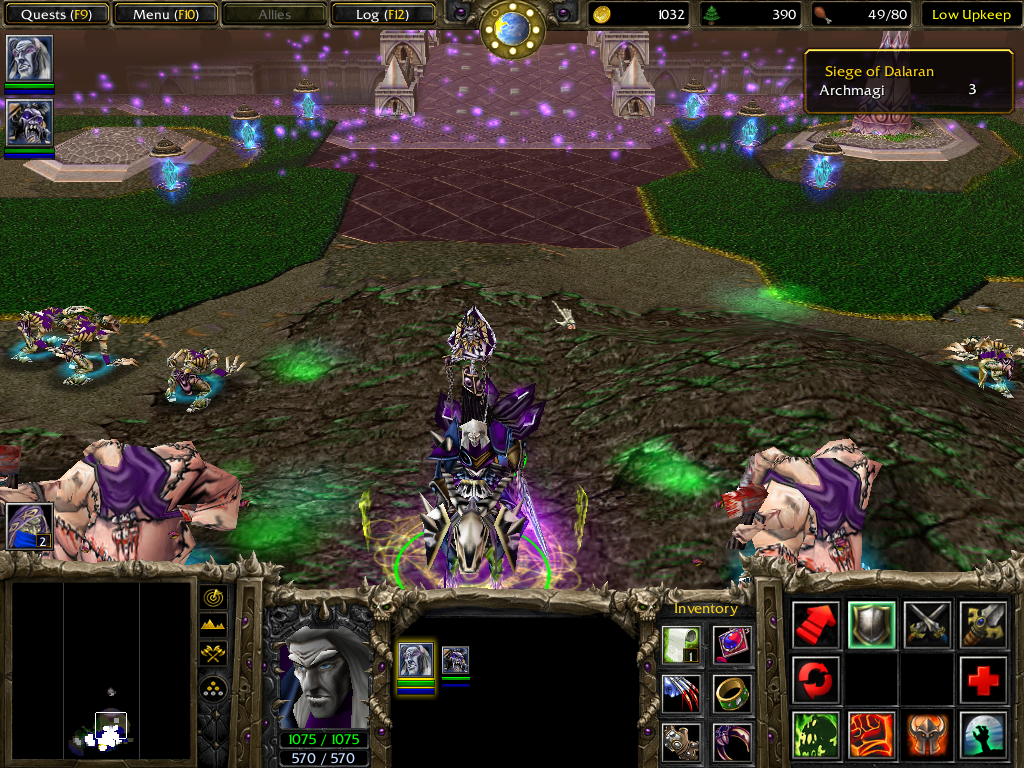
Screenshot of WarCraft III: Reign of Chaos (Windows, 2002) - MobyGames
The Undead Siege of Dalaran
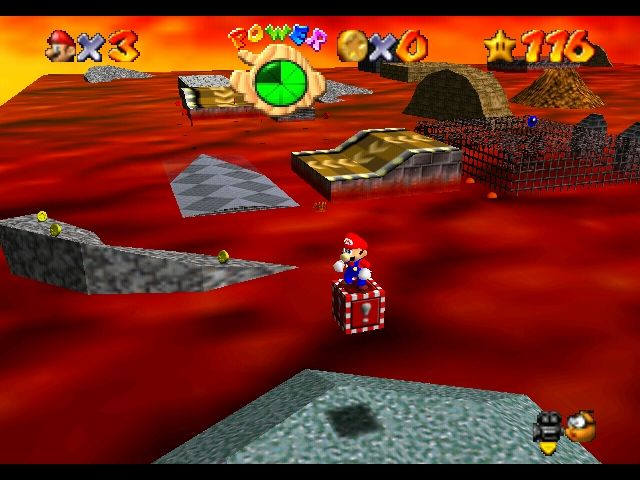
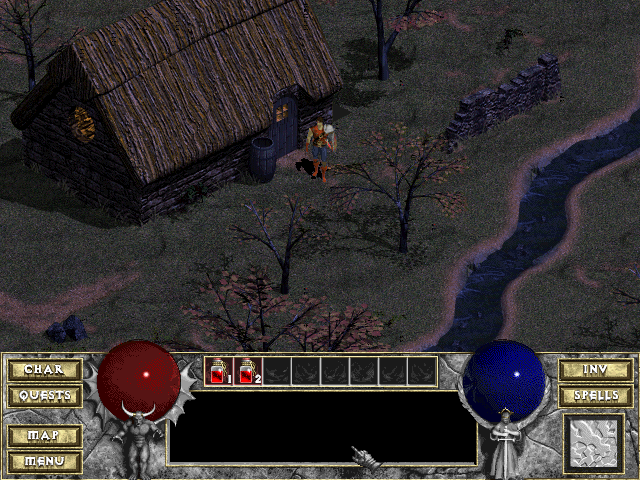
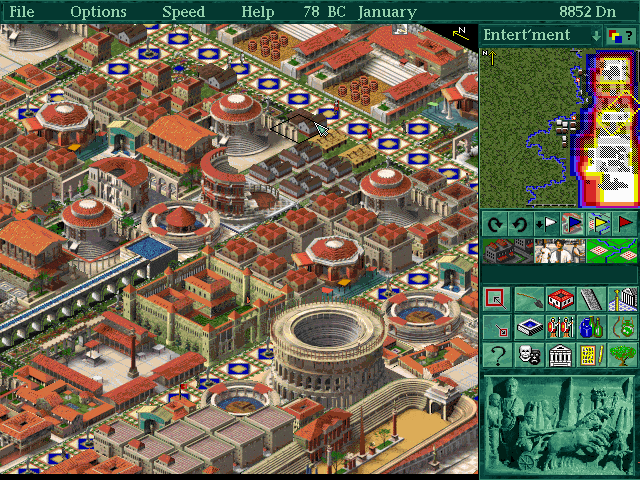
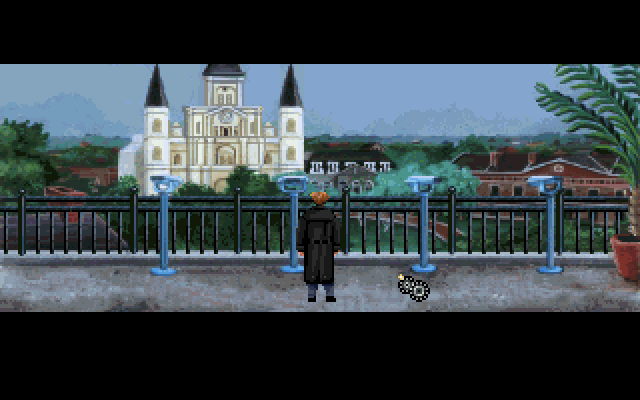
Screenshot of Gabriel Knight: Sins of the Fathers (DOS, 1993) - MobyGames
Looking over the city park
Last edited:
UncivilizedGuy
King of the Universe
- Joined
- May 24, 2012
- Messages
- 1,106
I prefer realism. It's more immersive. Photorealistic would be fantastic but would probably be too taxing for the average GPU. I'm still convinced Firaxis went with the cartoonish style for Civ 6 because it would translate better to mobile devices. Back when the game was in early development mobile games were just taking off in popularity. Humankind looks nice but I really want to be blown away by the look of Civ 7.
I would like to add that this goes beyond the art style. Civ 6 gameplay doesn't feel natural to me. It's too much like a board game. If Civ 7 plays the same way Civ 6 does it will be a huge let down.
I would like to add that this goes beyond the art style. Civ 6 gameplay doesn't feel natural to me. It's too much like a board game. If Civ 7 plays the same way Civ 6 does it will be a huge let down.
Last edited:
Piranga
Warlord
- Joined
- Feb 13, 2018
- Messages
- 237
Back to realistic looking leaders please!
Most of the leaders in 6 are odd looking proportionally, and most disappointing of all are the leader screen backgrounds. Having them up against a dull drawing makes the leaders stick out like a sore thumb......like a wonky oversized Julius Caesar thumb.
I hope for 7 we get sharp, realistic leaders that are involved in the background again. I want an immersive scene with Hatshepsut in her throne room. Not cartoon looking, hentai eyed Cleopatra with some flat background.
Most of the leaders in 6 are odd looking proportionally, and most disappointing of all are the leader screen backgrounds. Having them up against a dull drawing makes the leaders stick out like a sore thumb......like a wonky oversized Julius Caesar thumb.
I hope for 7 we get sharp, realistic leaders that are involved in the background again. I want an immersive scene with Hatshepsut in her throne room. Not cartoon looking, hentai eyed Cleopatra with some flat background.
- Status
- Not open for further replies.
Similar threads
- Replies
- 4
- Views
- 681
- Replies
- 3
- Views
- 707
- Replies
- 4
- Views
- 483
